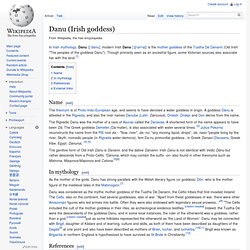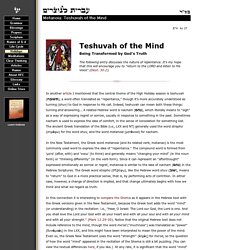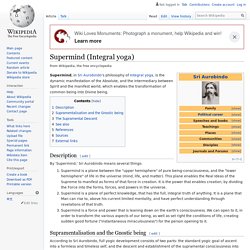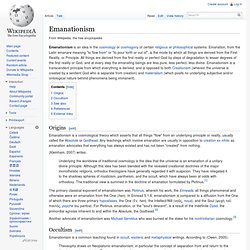

What is Fornication? Fornication is universally condemned among religions, yet the definition of the word has been subjected to centuries of misinterpretation and misunderstanding, and often, intentional misuse.

Originally, the term fornication was derived from the Indo-European word gwher, "to burn. " The study of this root word and its many branches reveals the meanings of many religious symbols. Etymology of Fornication Originated from: gwher-, meaning "To heat, warm. " It is common to read that fornication is derived from the Latin fornix. fornic or fornix (Latin): plural: fornices. In Roman times, brothels were called "fornices," seemingly because prostitutes could be hired near the "arches" of certain buildings. Nonetheless, the most significant relationship here is between gwher, "to burn," and the word fornication.
Fornication Defined in Christianity Fornication Defined in Judaism Christianity was derived from the Jewish tradition. In other words, fornication can occur with one's own wife. Danu (Irish goddess) In Irish mythology, Danu ([ˈdanu]; modern Irish Dana [ˈd̪ˠanˠə]) is the mother goddess of the Tuatha Dé Danann (Old Irish: "The peoples of the goddess Danu").

Though primarily seen as an ancestral figure, some Victorian sources also associate her with the land.[1] The genitive form of Old Irish Danu is Danann, and the dative Danainn. Irish Danu is not identical with Vedic Dānu but rather descends from a Proto-Celtic *Danona, which may contain the suffix -on- also found in other theonyms such as Matrona, Maqonos/Maponos and Catona.[5][6] Bon. Yungdrung is a left facing swastika, a sacred symbol of Bon religion.[1] Gods and spirits[edit] Bonpos cultivate household gods in addition to other deities: Traditionally in Tibet divine presences or deities would be incorporated into the very construction of the house making it in effect a castle (dzong) against the malevolent forces outside it.

The average Tibetan house would have a number of houses or seats (poe-khang) for the male god (pho-lha) that protects the house. Everyday [sic] the man of the house would invoke this god and burn juniper wood and leaves to placate him. Academia's Case of Stockholm Syndrome. Earlier this year, we launched Researchers.One, a scholarly publication platform open to all researchers in all fields of study.

Founded on the principles of academic freedom, researcher autonomy, and scholarly quality, Researchers.One features an innovative author-driven peer review model, which ensures the quality of published work through a self-organized process of public and non-anonymous pre- and post-publication peer review. Believing firmly that researchers can and do uphold the principles of good scholarship on their own, Researchers.One has no editorial boards, gatekeepers, or other barriers to interfere with scholarly discourse. In its first few months, Researchers.One has garnered an overwhelmingly positive reception, both for its emphasis on core principles and its ability to attract high quality publications from a wide range of disciplines, including mathematics, physics, philosophy, probability, and statistics. Related. Metanoia - Teshuvah of the Mind. In another article I mentioned that the central theme of the High Holiday season is teshuvah (תְּשׁוּבָה), a word often translated as "repentance," though it's more accurately understood as turning (shuv) to God in response to His call.

Indeed, teshuvah can mean both these things: turning and answering... A related Hebrew word is nacham (נָחַם), which literally means to "sigh" as a way of expressing regret or sorrow, usually in response to something in the past. Metanoia – Word of the day - EVS Translations. Most of us have probably had at least one period of big change in their life.

These periods tend to be challenging and uncomfortable to say the least. Whether it is a realization of a recurring pattern, letting go of a limiting belief, a new understanding – the breakthrough is a hard time. Metanoia - OrthodoxWiki. Metanoia (Greek μετάνοια) means a "change of heart," or, more literally, "after perception," tying it closely to the idea of repentance.

Metanoia is also another name for a prostration, with the idea that the physical movement of prostration is an indication of an internal reorientation to follow Christ. "[Metanoia] involves, that is, not mere regret of past evil but a recognition by man of a darkened vision of his own condition, in which sin, by separating him from God, has reduced him to a divided, autonomous existence, depriving him of both his natural glory and freedom. " —[1] This article or section is a stub (i.e., in need of additional material). You can help OrthodoxWiki by expanding it. See also Repentance. Anandamaya kosha. The Anandamaya kosha in traditional Advaita Vedanta[edit] The Anandamaya kosha according to Subba Row[edit] The Anandamaya kosha according to Sivaya Subramuniyaswami[edit] The Self made of Delight according to Sri Aurobindo[edit] External links[edit]

Supermind (Integral yoga) Supermind, in Sri Aurobindo's philosophy of Integral yoga, is the dynamic manifestation of the Absolute, and the intermediary between Spirit and the manifest world, which enables the transformation of common being into Divine being.

By 'Supermind,' Sri Aurobindo means several things: Emanationism. Emanationism is an idea in the cosmology or cosmogony of certain religious or philosophical systems.

Emanation, from the Latin emanare meaning "to flow from" or "to pour forth or out of", is the mode by which all things are derived from the First Reality, or Principle. All things are derived from the first reality or perfect God by steps of degradation to lesser degrees of the first reality or God, and at every step the emanating beings are less pure, less perfect, less divine.
Emanationism is a transcendent principle from which everything is derived, and is opposed to both Creationism (wherein the universe is created by a sentient God who is separate from creation) and materialism (which posits no underlying subjective and/or ontological nature behind phenomena being immanent). Origins[edit] Enlightenment (spiritual) Notion in spirituality of full comprehension of a situation Perennialists and Universalists view enlightenment and mysticism as equivalent terms for religious or spiritual insight.
What exactly constituted the Buddha's awakening is unknown. It may probably have involved the knowledge that liberation was attained by the combination of mindfulness and dhyāna, applied to the understanding of the arising and ceasing of craving. The relation between dhyana and insight is a core problem in the study of Buddhism, and is one of the fundamentals of Buddhist practice. In the western world the concept of spiritual enlightenment has become synonymous with self-realization and the true self and false self, being regarded as a substantial essence being covered over by social conditioning. Epigenesis. Samadhi. A state of meditative consciousness in Indian religions Samādhi (Sanskrit: समाधी, also called samāpatti), in Hinduism, Jainism, Buddhism, Sikhism and yogic schools, is a state of meditative consciousness.
In the yogic traditions, and the Buddhist commentarial tradition on which the Burmese Vipassana movement and the Thai Forest tradition rely, it is a meditative absorption or trance, attained by the practice of dhyāna. In the oldest Buddhist suttas, on which several contemporary western Theravada teachers rely, it refers to the development of a luminous mind which is equanimous and mindful. Definitions[edit] Kundalini FAQ. Version 2.01, June 2002 Copyright Kurt Keutzer, 2002 (keutzer@eecs.berkeley.edu) The author grants the right to copy and distribute this file, provided it remains unmodified and original authorship and copyright is retained. Adding tasteful artwork is encouraged. Please do not change the title (in html) of this document. The author retains both the right and intention to modify and extend this document. This FAQ gives a background on the phenomenon of kundalini and is assumed material before reading the other related articles: Siddha Mahayoga FAQ Kundalini Yogas FAQThe Siddha Mahayoga Tradition of Swami Shivom Tirth I bow to the vibrant source of my innermost bliss.
Encyclopedic Theosophical Glossary, G de Purucker ed. Electronic Version of Current Working Manuscript G. de Purucker, Editor-in-Chief Geoffrey Barborka, Editor and Project Manager Grace F. Knoche, Editor Associate Editors: Sarah Belle Dougherty, A. Studley Hart, Elsa-Brita Titchenell Major Contributors: Henry T. Edge, Joseph H.
Copyright © 1999 by Theosophical University Press. EDITORS’ NOTE: This online version of the Encyclopedic Theosophical Glossary is a work in progress. Last Update: Sept. 12, 2019 Contents. Sri Ma Anandamayi » Glossary of Sanskrit terms. Sanskrit Lexicon Page. Kadaitswami: "Marketplace swami. " A satguru of the Nandinatha Sampradaya's Kailasa Parampara. Born ca 1820; died 1875. Renouncing his career as a judge in Bangalore, South India, Kadaitswami became a sannyasin and trained under the "Rishi from the Himalayas," who then sent him on mission to Sri Lanka. He performed severe tapas on an island off the coast of Jaffna, awakening many siddhis.
For decades he spurred the Sri Lankan Saivites to greater spirituality through his inspired talks and demonstration of siddhis. Anapanasati. Erudite Terms. Esoteric Terms. Thought Patterns. Wordsworth. Zazen. Intuition and Premonitions. Pseudo.